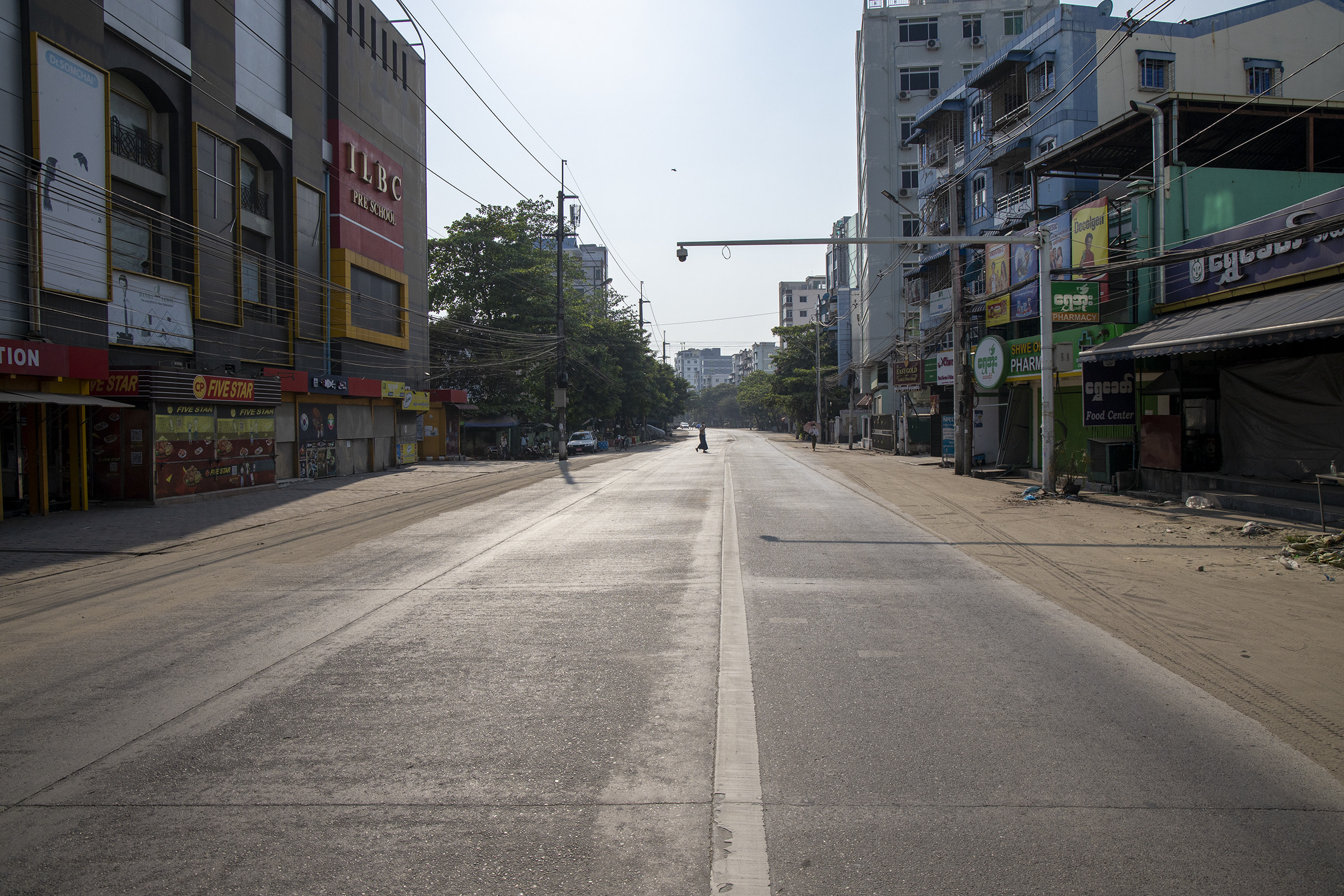Myanmar was a nation of ghost towns Wednesday as opponents of the military regime collectively shamed the junta’s recent claims of “normalcy” in the country by staying home and shutting down their businesses in city after city.
People across the country were on “Silent Strike” as part of their ongoing opposition against the military regime that grabbed power from Myanmar’s democratically elected government on Feb. 1 by staging a coup.
Since mid-February, major cities across the country have been reeling from chaos caused by violence and deadly crackdowns by soldiers and police on anti-regime protesters. Shops and markets have cut their business hours short due to frequent and fatal confrontations between security forces and protesters on the streets. Many closed their businesses entirely out of fear. Roads that used to be crowded with traffic are now blocked by barricades set up by protesters to deter the advancement of troops.
Beginning last week, the regime launched a serious effort to reopen businesses by force and clear roadblocks with the occasional use of forced labor, grabbing anyone they saw on the road or from their homes.
Then they trumpeted on state-owned and military-controlled media that “markets and malls at some townships in Yangon (Myanmar’s business hub) have reopened as situations returned to normalcy.”
In response to the regime’s claim of normalcy, people campaigned online to launch a one-day silent strike partly to prove that the claim was wrong and also to demonstrate another form of defiance against the junta.
On Wednesday, roads in major cities like Yangon, Mandalay, Naypyitaw, Monywa and others were mostly deserted.

Major businesses like the country’s biggest retail malls like City Mart, Ocean announced they were closed. Taxi and delivery service Grab suspended its service. Local wet markets turned dry as they only opened a few hours in the morning to let people buy necessities. Even corner stores like ABC and City Express were closed. Wholesale markets were no exception. Even protesters took a day off.
With a handful of cars on the road and few people out to shop for necessities, downtown Yangon on Wednesday was reminiscent of the COVID lockdown period that the city underwent nearly one year ago. On some shady roads of the city, stray dogs napped safely under the hot mid-day sun as there was no vehicle traffic to interrupt their freedom.
Myanmar second biggest city, Mandalay, totally plunged into silence after 8 a.m. Wednesday. The city’s busiest area near Zay Cho market was totally deserted, according to witnesses. Buddhist monks who normally went around the city in the morning to receive food and other offerings broke their ritual on Wednesday.
“I have never experienced that kind of silence in my life, not even during the COIVD,” said U Kyaw Thiha, a city resident.
The 40-year-old added that the strike on Wednesday was a testament of the people’s unity when it came to saying no to the junta.
“We have no leader telling us what to do. People just join together out of their conscience to oppose the dictatorship,” he said.
You may also like these stories:
Myanmar Security Forces Snatch the Bodies of Those They Have Slain
Myanmar Military Junta Releases 628 Protest-Related Detainees
China and Russia Express ‘Deep Concern’ as Myanmar’s Protest Death Toll Mounts

















